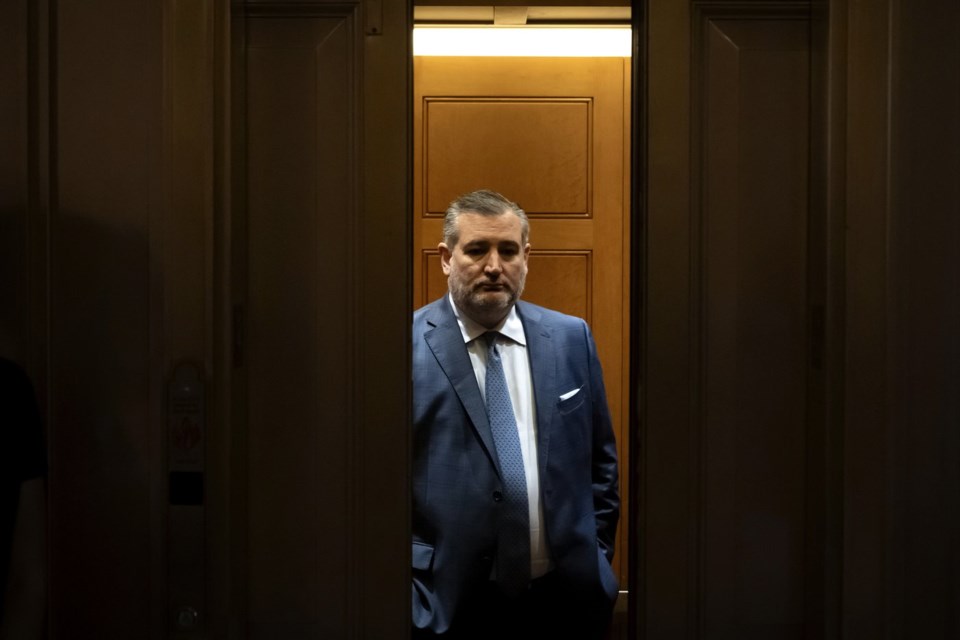WASHINGTON (AP) вҖ” A proposal to deter states from regulating artificial intelligence for a decade was soundly defeated in the U.S. Senate on Tuesday, thwarting attempts to insert the measure into big bill of
The Senate voted 99-1 to strike the AI provision from the legislation after weeks of criticism from both Republican and Democratic governors and state officials.
a 10-year ban on states doing anything to regulate AI, lawmakers later tied it to federal funding so that only states that backed off on AI regulations would be able to get subsidies for broadband internet or AI infrastructure.
A last-ditch Republican effort to save the provision would have reduced the time frame to five years and sought to exempt some favored AI laws, such as those protecting children or from harmful AI tools.
But that effort was abandoned when Sen. Marsha Blackburn, a Tennessee Republican, teamed up with Democratic Sen. Maria Cantwell of Washington on Monday night to introduce an amendment to strike the entire proposal.
Blackburn said on the floor that вҖңit is frustratingвҖқ that Congress has been unable to legislate on emerging technology, including online privacy and AI-generated вҖңdeepfakesвҖқ that impersonate an artist's voice or visual likeness. вҖңBut you know who has passed it? It is our states,вҖқ Blackburn said. вҖңTheyвҖҷre the ones that are protecting children in the virtual space. TheyвҖҷre the ones that are out there protecting our entertainers вҖ” name, image, likeness вҖ” broadcasters, podcasters, authors.вҖқ
Voting on the amendment happened after 4 a.m. Tuesday as part of as Republican leaders sought to secure support for the tax cut bill while fending off other proposed amendments, mostly from Democrats trying to defeat the package.
Proponents of an AI moratorium had argued that a patchwork of state and local AI laws is hindering progress in the AI industry and the ability of U.S. firms to compete with China.
Some prominent tech leaders welcomed the idea after Republican Sen. Ted Cruz of Texas, who leads the Senate Commerce committee, floated it at a hearing in May. OpenAI CEO Sam Altman told Cruz that вҖңit is very difficult to imagine us figuring out how to comply with 50 different sets of regulation.вҖқ
But state and local lawmakers and AI safety advocates argued that the rule is a gift to an industry that wants to avoid accountability for its products. Led by Arkansas Gov. Sarah Huckabee Sanders, a majority of GOP governors sent a letter to Congress opposing it.
Sanders, who was White House press secretary in TrumpвҖҷs first term, credited Blackburn for вҖңleading the chargeвҖқ to defend statesвҖҷ rights to regulate AI.
вҖңThis is a monumental win for Republican Governors, President TrumpвҖҷs one, big beautiful bill, and the American people,вҖқ Sanders wrote on X on Tuesday.
Also appealing to lawmakers to strike the provision was a group of parents of children who have died as a result of online harms.
вҖңIn the absence of federal action, the moratorium gives AI companies exactly what they want: a license to develop and market dangerous products with impunity вҖ” with no rules and no accountability,вҖқ Florida mother Megan Garcia wrote in a letter last week. Garcia of an AI chatbot she says pushed her 14-year-old son to kill himself. вҖңA moratorium gives companies free rein to create and launch products that sexually groom children and encourage suicide, as in the case of my dear boy.вҖқ
Cruz over the weekend tried to broker a last-ditch compromise with Blackburn to save the provision. Changes included language designed to protect child safety as well as Tennessee's so-called ELVIS Act, championed by Nashville's country music industry to restrict AI tools from replicating an artistвҖҷs voice without their consent. Cruz said it could have вҖңpassed easilyвҖқ had Blackburn not backed out.
вҖңWhen I spoke to President Trump last night, he said it was a terrific agreement,вҖқ Cruz said. вҖңThe agreement protected kids and protected the rights of creative artists. But outside interests opposed that deal.вҖқ
Blackburn said Tuesday there were вҖңproblems with the languageвҖқ of the amendment.
Cruz withdrew the compromise amendment and blamed a number of people and entities he said вҖңhated the moratorium,вҖқ including China, Democratic California Gov. Gavin Newsom, a teachers union leader and вҖңtransgender groups and radical left-wing groups who want to use blue state regulations to mandate woke AI.вҖқ
He didn't mention the broad group of Republican state legislators, attorneys general and governors who also opposed it. Critics say Cruz's proposal, while carving out some exemptions, would have affected states' enforcement of any AI rules if they were found to create an вҖңundue or disproportionate burdenвҖқ on AI systems.
Even Cruz ultimately joined the early Tuesday vote to strip the proposal. Only Sen. Thom Tillis, a North Carolina broader budget bill, voted against eliminating the AI provision.
вҖңThe proposed ban that has now been removed would have stopped states from protecting their residents while offering nothing in return at the federal level,вҖқ Jim Steyer, founder and CEO of children's advocacy group Common Sense Media, wrote in a statement. вҖңIn the end, 99 senators voted to strip the language out when just hours earlier it looked like the moratorium might have survived.вҖқ
вҖ”-
O'Brien reported from Providence, Rhode Island.
Matt Brown And Matt O'brien, The Associated Press



